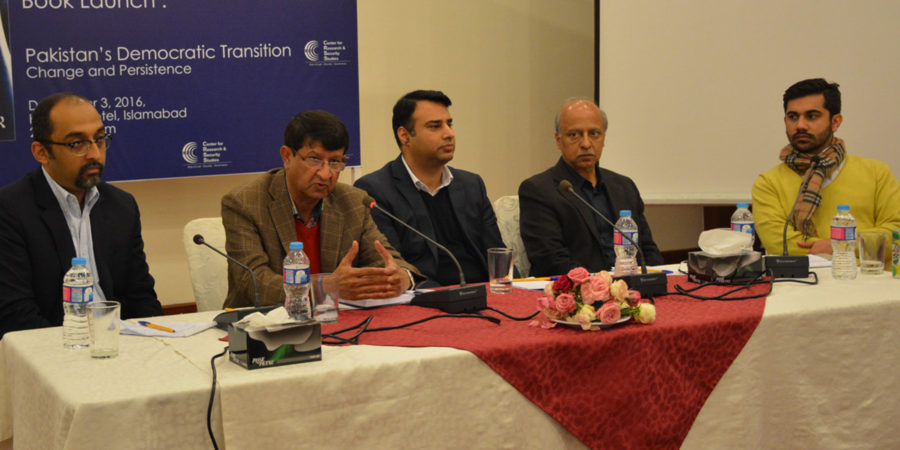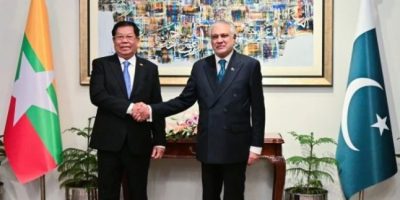Book on democratic transition in Pakistan launched

ISLAMABAD, DEC 04 (DNA) – has a promising future due to the ongoing structural transformations such as the diffusion of political power and emergence of new power centres like judiciary, media and civil society, said Dr Ishtiaq Ahmad, Quaid-e-Azam Professor, at the launch of his co-edited book titled Pakistan’s Democratic Transition: Change and Persistence in Islamabad today.
The book provides contending views on Pakistan’s current democratic transition. Drawing on history, diverse theoretical perspectives, and empirical evidence, it explains the emerging political trends in the country, including their underlying sources, attributes, constraints, and prospects of sustainability.
“For a country with a conflict-orientation, it is natural to have a civil-military convergence and for the establishment to be actively involved in public policy and play its role,” said Dr Ishtiaq.
“The power structure in Pakistan has changed. Several drivers of including change external environment, domestic security and economic situation, and the challenges in its major relationships back the recent democratic transition and transformation in Pakistan,” he added.
The launch ceremony was organised by the Centre for Research and security Studies.
Published by Routledge, the book brings together 13 prominent scholars and experts on politics including political economy, democratic transition, and foreign policy.
“There is a popular image attached to Pakistani politics about military domination: the study instead goes beyond the popular discourse, explore history, linkages between facts, and come up with factual analysis with variable that are more influential in shaping realities, Dr Ishtiaq said.
Leadingcolumnist Mosharraf Zaidi said that to strengthen human capital there is a need to refine democracy because democracy helps human capital formation. If there was a competition between democracies and non-democracies, democracies are slightly ahead in comparison to other systems when it comes to human capital formation.
The demographic dividend of Pakistan requires building up capacities of young people. There are 100 million people below the age of 25 in Pakistan and there is a challenge to cultivating and mentoring them at the micro level, failure to do which is an economic challenge.
Head of Center for Research and Security Studies Imtiaz Gul said that judicial intervention has challenged the dominant power structure in Pakistan. Judicial activism has accelerated the processes in Pakistan in an age of crises of integrity, and has put all stakeholders of power at accountability.
The co-editor Adnan Rafiq who is a doctoral candidate at University of Oxford, UK said that “the emergence of an expanded middle-class is increasingly shaping the political power structure in Pakistan”.
The indicators of this changing political power structure include increased political participation, indictments, voices against social evils, support to accountability, and social mobility.
The changing landscape of political economy in Pakistan makes the idea of another coup not impossible, but certainly more expensive. =DNA
==============
Related News

Republic Day of India celebrated in Islamabad
ISLAMABAD, JAN 26 (DNA) – A diplomatic reception was hosted to mark the 77th Republic DayRead More

Pakistan, Myanmar vow stronger ties via sustained diplomatic engagement
ISLAMABAD, JAN 26: Pakistan and Myanmar on Monday moved to reinvigorate their bilateral relationship, reaffirmingRead More


Comments are Closed